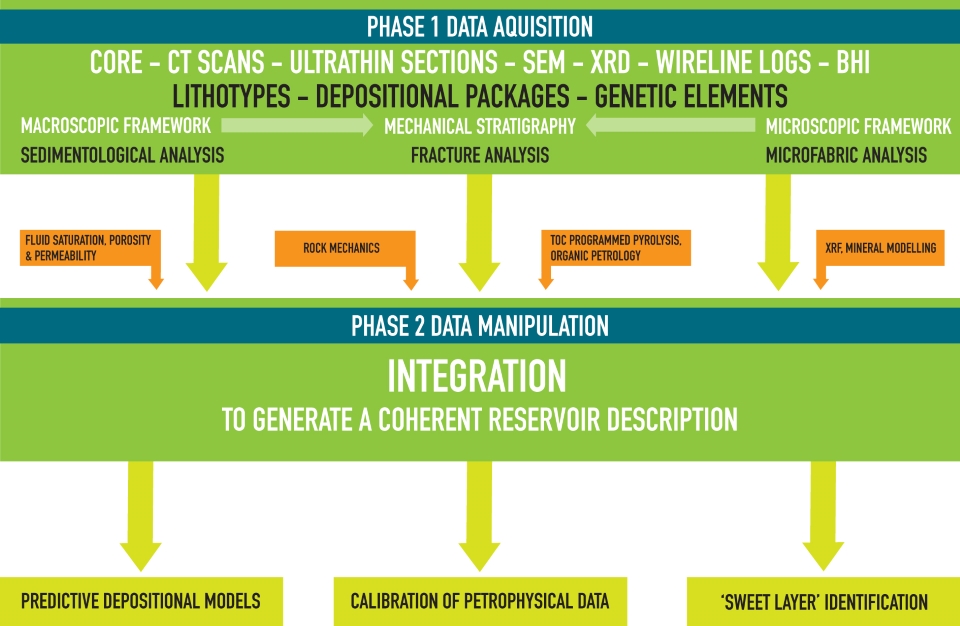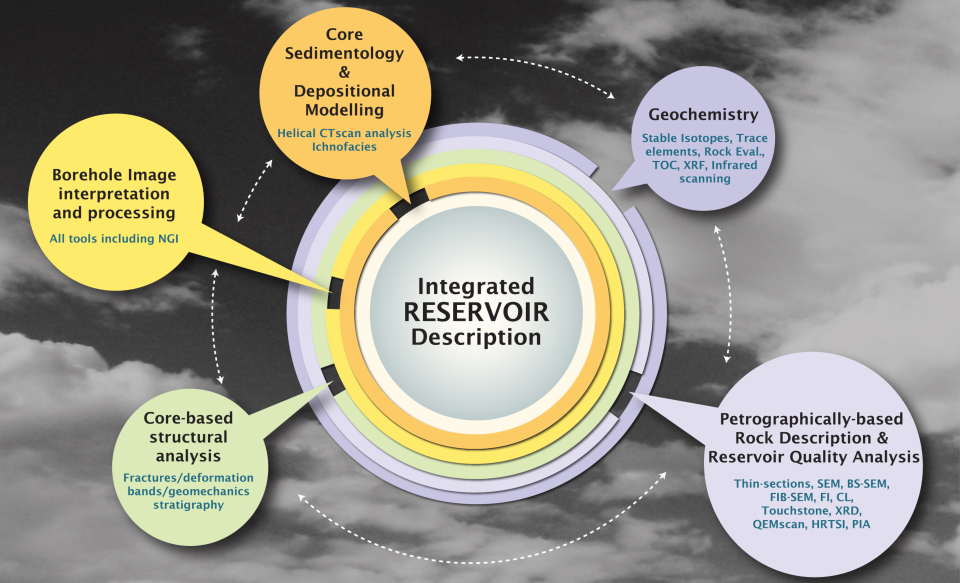
Geoscience offers something unique. Recovery factors remain <10% for oil and <20% for gas in unconventional reservoirs, despite continued engineering advances. Geoscience can contribute to improving these figures by distilling the geological essence of the wide range of data acquired from unconventional plays. Ordered primary observations, based on sound geological principles, provide a robust framework for meaningful integration and upscaling of key reservoir properties.
Experience in key markets. Badley Ashton and its partner, Denver-based Tucker Creek Consulting, have significant experience from a range of unconventional reservoirs, including liquids and gas-rich plays in North America and tight gas plays across the Middle East and North Africa.
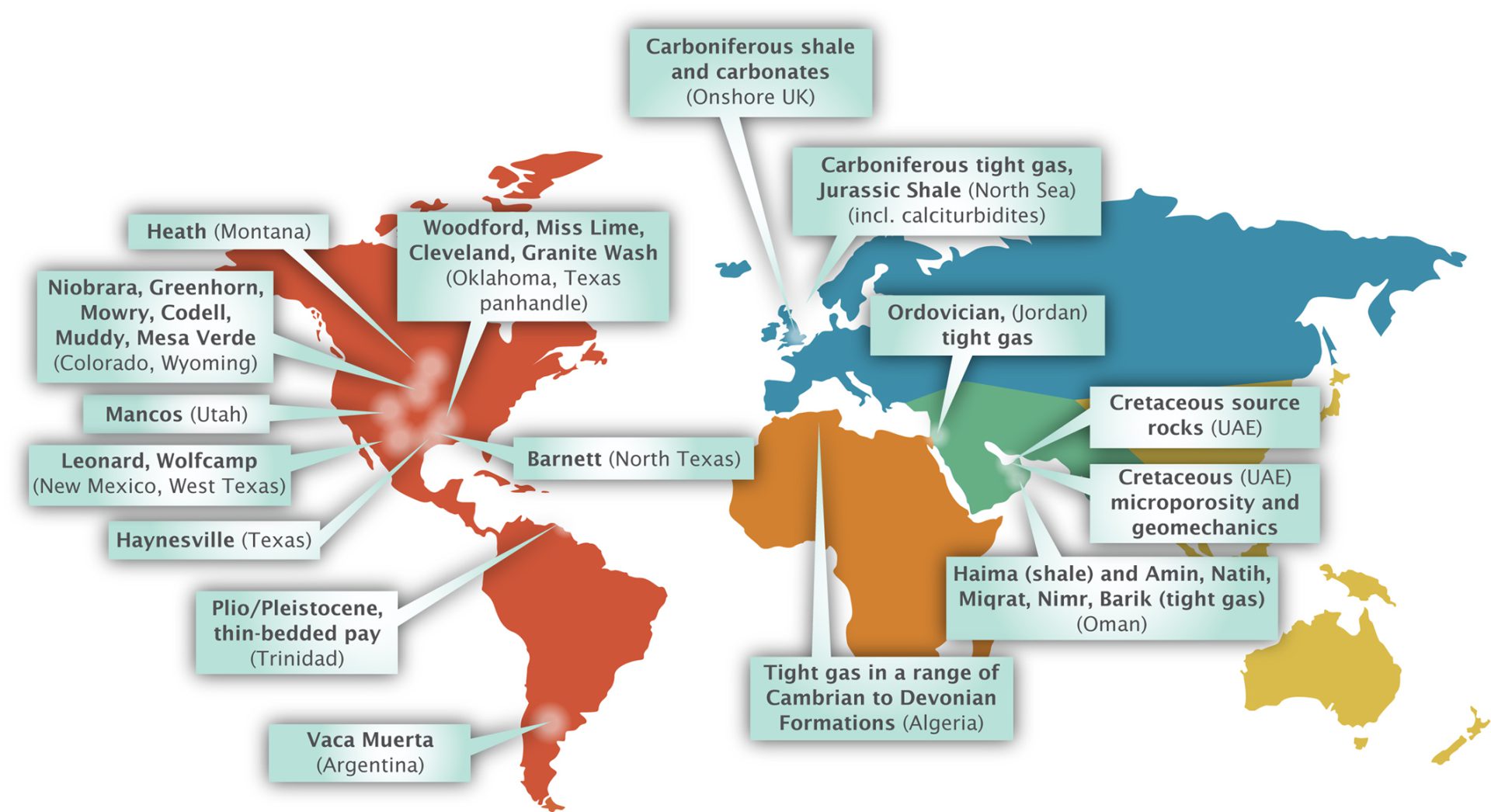
Geological heterogeneity strongly influences source, reservoir and completion quality. From a sedimentological perspective there are a wide-range of reservoir types, from those that are ‘quasi-conventional’, such as the Wolfcamp, to those that are much more ‘unconventional’, such as the Niobrara and Woodford. As such geological heterogeneity in terms of composition, lithology and fabric plays a significant, and often seemingly unpredictable, role in defining source, reservoir and completion quality.
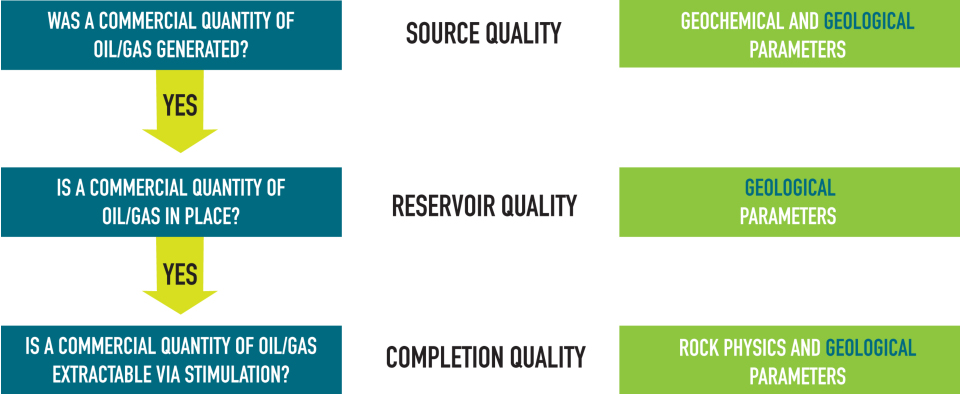
Hierarchical reservoir description approach enables true integration. A nested reservoir description scheme is applied in order to capture, integrate and upscale data across the wide range of scales encountered during the exploration, development and exploitation of unconventional plays.
 This example from the Wolfcamp in Texas illustrates how this process works in practice.
This example from the Wolfcamp in Texas illustrates how this process works in practice.
Core Sedimentology Logs visually capture the reservoir heterogeneity. Badley Ashton’s core logs display the lithotypes and depositional packages alongside a hand-drawn graphic lithology that visually captures the nature of the sedimentological heterogeneity. Descriptive and interpretative text aid in the practical use of the core log, and potential reservoir implications are clearly highlighted in a separate section.
As understanding develops and data are integrated, the nature of the upscaled genetic elements becomes increasingly clear. These sediment bodies have geometric connotations (width, thickness, lateral extent, correlation lengths) and can be identified in core, logs, borehole image (BHI) and often seismic. Genetic elements commonly form the main components of a typical reservoir model.
Meaningful integration and upscaling. Nested reservoir characterisation enables quantitative assimilation of the wide range of data captured during the reservoir characterisation process and thus allows for true and meaningful integration and upscaling.
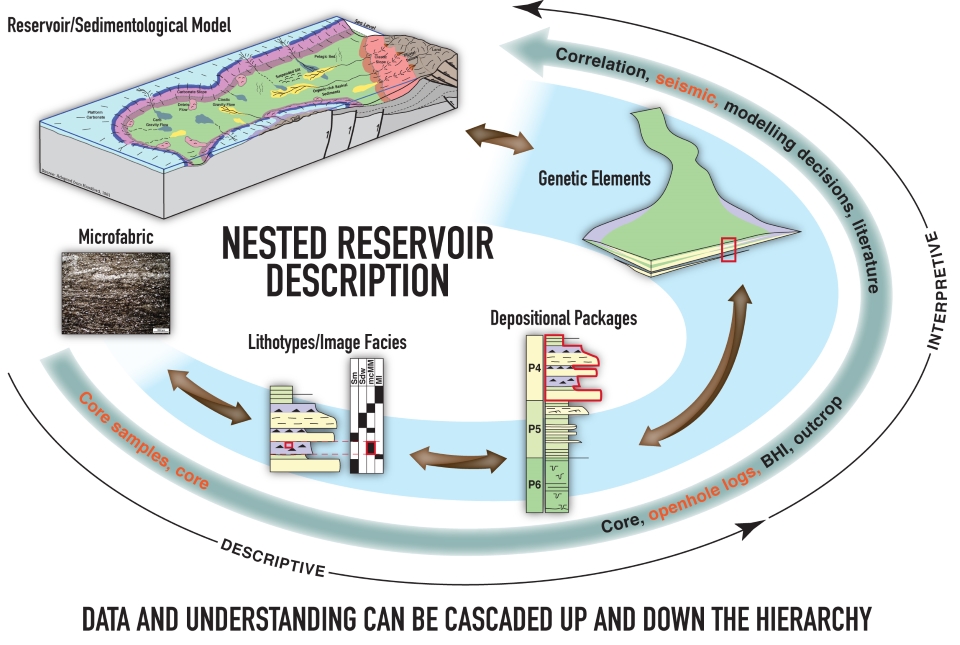
Commitment to a holistic approach. In addition to the sedimentological services outlined above, Badley Ashton also provides a wide range of complementary services that can be utilised in unconventional reservoir charaterisation. These include the analysis of borehole image data, structural features, reservoir quality and diagenesis (see the links below). The ability to collect and analyse such diverse data sets emphasises our commitment to holistic reservoir characterisation.